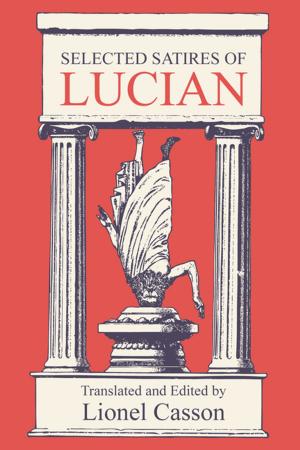Eugenics, Literature, and Culture in Post-war Britain
Nonfiction, Science & Nature, Science, Biological Sciences, Genetics, Fiction & Literature, Literary Theory & Criticism, British| Author: | Clare Hanson | ISBN: | 9781136224683 |
| Publisher: | Taylor and Francis | Publication: | October 12, 2012 |
| Imprint: | Routledge | Language: | English |
| Author: | Clare Hanson |
| ISBN: | 9781136224683 |
| Publisher: | Taylor and Francis |
| Publication: | October 12, 2012 |
| Imprint: | Routledge |
| Language: | English |
This book explores eugenics in its wider social context and in literary representations in post-war Britain. Drawing on a wide range of sources in medicine, social and educational policy, genetics, popular science, science fiction, and literary texts, Hanson tracks the dynamic interactions between eugenic ideas across diverse cultural fields, demonstrating the strength of the eugenic imagination. Challenging assumptions that eugenics was fatally compromised by its association with Nazi atrocities, or that it petered out in the context of changed social attitudes in an egalitarian post-war society, the book demonstrates that eugenic thought not only persisted after 1945, but became more prominent. Throughout, eugenics is defined as a cultural movement, rather than more narrowly as a science, and the study is focused on its border-crossing capacity as a ‘style of thought.’ By tracing the expression of eugenic ideas across disciplinary boundaries and in both high and low culture, this book demonstrates the powerful and pervasive influence of eugenics in the post-war years. Authors visited include Raymond Williams, John Braine, Agatha Christie, Muriel Spark, Anthony Burgess, Doris Lessing, and J.G. Ballard.
This book explores eugenics in its wider social context and in literary representations in post-war Britain. Drawing on a wide range of sources in medicine, social and educational policy, genetics, popular science, science fiction, and literary texts, Hanson tracks the dynamic interactions between eugenic ideas across diverse cultural fields, demonstrating the strength of the eugenic imagination. Challenging assumptions that eugenics was fatally compromised by its association with Nazi atrocities, or that it petered out in the context of changed social attitudes in an egalitarian post-war society, the book demonstrates that eugenic thought not only persisted after 1945, but became more prominent. Throughout, eugenics is defined as a cultural movement, rather than more narrowly as a science, and the study is focused on its border-crossing capacity as a ‘style of thought.’ By tracing the expression of eugenic ideas across disciplinary boundaries and in both high and low culture, this book demonstrates the powerful and pervasive influence of eugenics in the post-war years. Authors visited include Raymond Williams, John Braine, Agatha Christie, Muriel Spark, Anthony Burgess, Doris Lessing, and J.G. Ballard.















